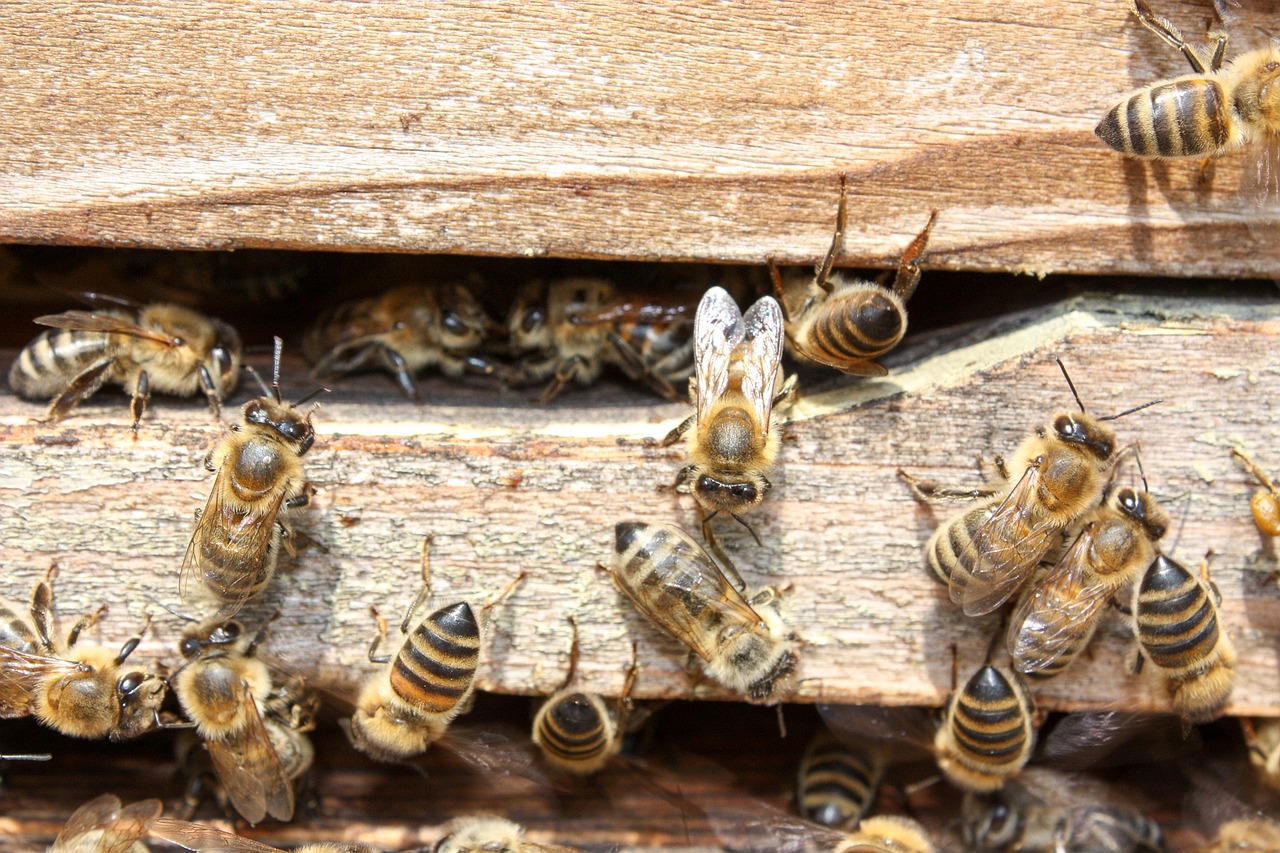Bees are not only crucial to our environment but also to the food we eat. These tiny creatures play an immense role in pollination, ensuring that plants, flowers, and even our crops thrive. From their complex social structures to their astounding navigational skills, bees are truly remarkable. In this post, we’ll dive deep into the top 10 most interesting facts about bees that will leave you in awe of these tiny pollinators.
10. Bees Can Fly at Incredible Speeds
One of the most fascinating things about bees is their ability to fly at surprising speeds. They can reach speeds of up to 15 miles per hour (24 km/h) while foraging for nectar. This makes them incredibly efficient at visiting multiple flowers in a short time. Despite their tiny size, bees are expert navigators, and their agility in the air is essential to their role as pollinators.
Why It’s Amazing:
Bees are capable of flying quickly to cover large areas, enabling them to pollinate a vast number of flowers in one outing. Their speed also helps them escape predators and navigate through changing weather conditions.
9. Bees Can Recognize Human Faces
You might not expect a bee to remember a human face, but they can! Studies have shown that bees are capable of recognizing and remembering individual human faces. This ability is thought to be related to their complex visual processing, which allows them to recognize patterns, such as flowers, from a distance.
Why It’s Amazing:
This fact reveals just how advanced bees’ brains are. With a brain the size of a sesame seed, bees can store and recall detailed visual information, including faces. It’s a skill that many larger animals, including some humans, may struggle with!
8. Honey Bees Have a “Dancing” Language
Honey bees communicate with each other through a unique method known as the waggle dance. When a bee finds a rich source of nectar, it returns to the hive and performs a waggle dance to convey the location to the other bees. The angle of the dance, the duration, and the speed all convey specific information about the direction and distance of the nectar.
Why It’s Amazing:
This “language” of movement is an incredible form of communication. It allows bees to share detailed information with one another, ensuring they can effectively work together to gather food and support the hive. This highly organized social structure is one of the key reasons bees are so successful in their role as pollinators.
7. Bees Are Vital for Pollination
It’s well known that bees play a significant role in pollination, but the scale of their contribution might surprise you. Around 75% of flowering plants need pollinators, and bees are responsible for pollinating about one-third of the food we eat. This includes fruits, vegetables, nuts, and even some seeds, all of which depend on bees for successful reproduction.
Why It’s Amazing:
Without bees, many of the foods we take for granted would become much less abundant. Imagine a world without apples, almonds, or blueberries! Their pollination efforts directly impact our food supply, making them essential to global agriculture.
6. There Are Over 20,000 Species of Bees
When you think of bees, you probably picture a honey bee. However, there are over 20,000 different species of bees worldwide, each with its unique characteristics. Some species are solitary, while others live in colonies. The diversity of bees is staggering, and each species plays a role in different ecosystems.
Why It’s Amazing:
This diversity means that bees can thrive in various habitats and help pollinate different types of plants. From tiny solitary bees to large bumblebees, each species has adapted to its environment in fascinating ways.
5. A Bee’s Lifespan Depends on Its Role
The lifespan of a bee can vary dramatically depending on its role within the colony. Worker bees typically live for about 5 to 6 weeks, while queens can live for several years. A worker bee’s short life is due to the intense labor it performs, as it works tirelessly to forage for nectar and pollen. In contrast, the queen bee’s job is to lay eggs, and because she is the center of the colony’s reproduction, her life is far longer.
Why It’s Amazing:
The difference in lifespan between the worker bees and the queen reflects the varying roles within the hive. This division of labor is a crucial aspect of the bee colony’s survival and success.
4. Bees Can Travel Over 5 Miles from Their Hive
Bees are highly capable of traveling great distances to gather food. In fact, they can travel up to 5 miles from their hive in search of nectar or pollen. This allows them to access a diverse range of flowers and plants, ensuring that they have a variety of food sources.
Why It’s Amazing:
Bees’ ability to travel such distances is impressive given their small size. It also shows their dedication to gathering as much food as possible to support their colony. This ability to forage over large areas helps maintain healthy ecosystems and diverse plant life.
3. Bees Can Carry More Than Their Own Body Weight
Bees are incredibly strong for their size. Despite weighing only a fraction of an ounce, a bee can carry up to its own body weight in pollen and nectar. This strength is essential for them to collect and transport the food back to the hive, where it can be stored for later use.
Why It’s Amazing:
Bees’ strength is a marvel of nature. The fact that these small insects can carry so much weight relative to their size showcases their physical prowess and determination. It also emphasizes how much energy and effort they put into gathering food for the colony.
2. Bees Are Responsible for Producing Honey
Honey is not only a delicious treat for us, but it’s also an important food source for bees. Bees make honey by collecting nectar from flowers and transforming it through a process of digestion and evaporation. The nectar is then stored in the hive as honey, which provides the bees with energy during colder months when food is scarce.
Why It’s Amazing:
Honey is a perfect example of bees’ ingenuity and their ability to create something vital for their survival. The process of making honey is both fascinating and essential, and it’s something that humans have benefited from for thousands of years.
1. Bees Have a Complex and Advanced Social Structure
Bees live in highly organized colonies with a strict division of labor. The colony is made up of three types of bees: the queen, the worker bees, and the drones. The queen’s sole purpose is to lay eggs, while worker bees perform all the tasks necessary to maintain the colony, including foraging, nursing the young, and defending the hive. Drones exist solely to mate with the queen.
Why It’s Amazing:
The social structure of a bee colony is nothing short of incredible. Every bee has a specific role, and the success of the colony depends on the seamless coordination of these roles. The queen is often the only bee in the colony capable of reproduction, making her vital to the survival of the hive. This complex social system ensures that the colony thrives and can continue to pollinate the plants that keep our ecosystems healthy.
Conclusion: The Power of Bees
Bees are more than just small insects buzzing around our gardens; they are complex, intelligent creatures that play a crucial role in our ecosystem. From their amazing ability to recognize faces and communicate through dances to their contribution to food production and pollination, bees are truly remarkable. They are, in many ways, unsung heroes of our world.
Understanding and appreciating these fascinating facts about bees can inspire us to protect them, as their decline could have severe consequences for biodiversity and food production. So, next time you see a bee buzzing by, remember how essential they are to the world around us and why we should do our part in preserving them.
Bees are an indispensable part of our ecosystem, and the more we learn about them, the more we can appreciate their vital role. From their exceptional communication skills to their ability to produce honey, bees continue to amaze us with their intelligence, strength, and social structure. It’s no wonder that these tiny creatures deserve our respect and protection.





Leave a Reply